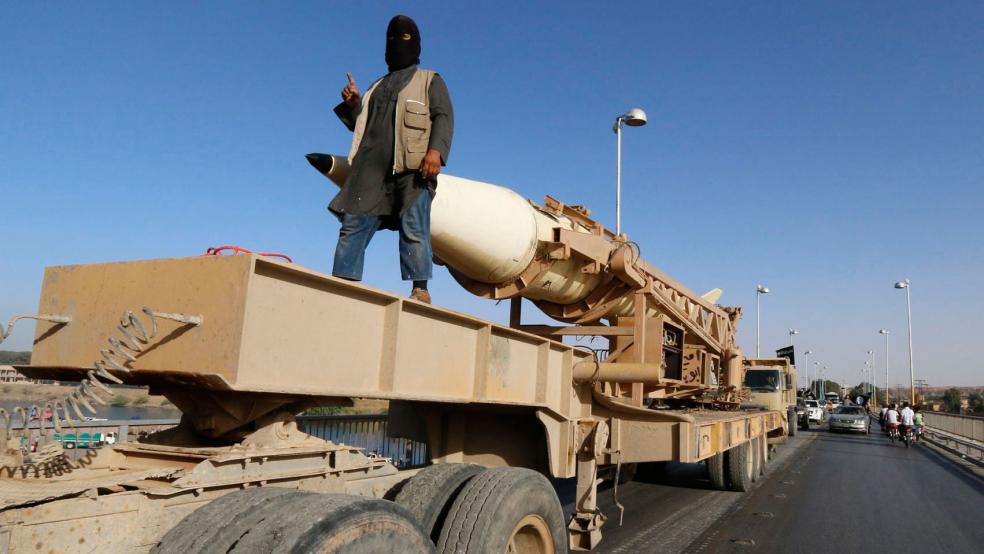Two weeks ago Defense Secretary Ash Carter and Joint Chiefs of Staff chairman Joseph Dunford held a news conference where they forcefully pushed back against critics of the administration’s war strategy against ISIS.
“The momentum of this campaign is now clearly on our side," Carter declared.
Related: The Nightmare Scenario Facing Iraq – and the US
Yet there are signs that while the extremist group is being squeezed in Iraq and Syria, it is expanding its presence elsewhere.
Due in part to worries about potential attacks by the extremist group, the Defense Department may pull some of its 700 peacekeeping troops out of a base in the northern part of Egypt’s Sinai Peninsula, CNN reports. The White House is discussing the possibility with Egypt and Israel; the two countries signed a peace treaty in 1979 that stipulated the Multinational Force and Observers mission would stay in the area to monitor adherence to the pact.
Some U.S. troops could be moved to the southern part of the peninsula. The U.S. contends it can fulfill its mission in the north by relying on unmanned technology and cameras, but both Cairo and Jerusalem would have to approve the move.
The news comes about a week after the Pentagon announced it would evacuate all military family members from Turkey – primarily from Incirlik Air Base, which has served as a hub for allied forces in the air war against ISIS -- due to security concerns.
As a result, 670 military dependents (and 287 personal pets) will be flown out of Turkey by U.S. military transports or charter flights.
Related: US Says Momentum Has Shifted in the War Against ISIS
Together, the developments show just how fluid the battle against ISIS remains.
On Tuesday, Senate Armed Services Committee chair John McCain (R-AZ) warned that the anti-ISIS fight was becoming another Vietnam War.
“As a young military officer, I bore witness to the failed policy of gradual escalation that ultimately led to our nation’s defeat in the Vietnam War … I fear this administration’s grudging incrementalism in the war against the Islamic State (ISIL) risks another slow, grinding failure for our nation,” McCain, who was a prisoner of war in North Vietnam for years, wrote in a letter to Carter.
In addition to Egypt and Turkey, there is concern among administration officials about the Islamic State’s presence in Libya, where the network has an estimated 3,000 fighters or more. It’s possible that the group could further metastasize on the African continent, opening a third front for the U.S. and its allies to deal with and attempt to roll back.





